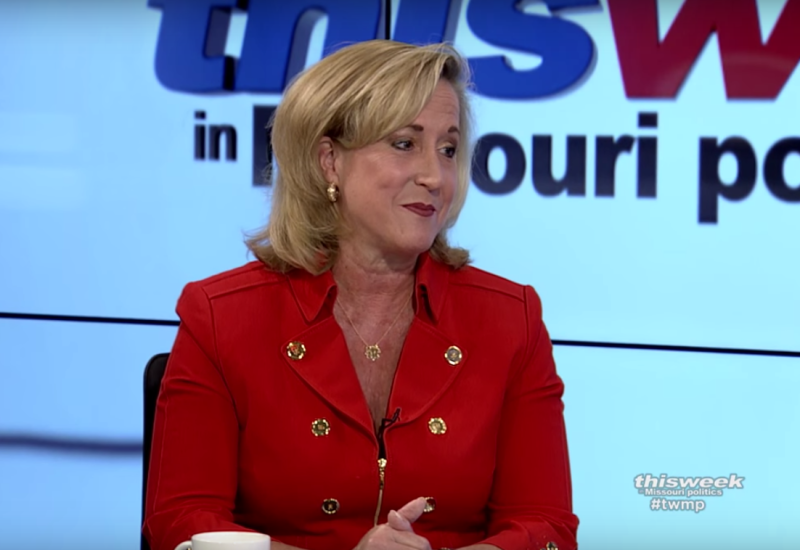With the clock running out, Missouri Congresswoman Ann Wagner is not giving up her fight for the reauthorization of the Debbie Smith Act — a federal program that provides resources and grants to state and local agencies to tackle rape kits.
Without reauthorization, the program is set to expire at midnight Monday — potentially costing Missouri law enforcement and other agencies working on the rape kit backlog millions.

Since 2004, the U.S. Congress has been able to reauthorize the Debbie Smith Act every five years. It provides $151 million in funding to eligible state and local agencies, including law enforcement and attorney general offices, annually for rape kit and DNA testing, whittling down the backlog, training on collecting evidence, and reenforcing crime labs.
More than 475,800 hits from CODIS, the FBI’s DNA database have helped with over 465,200 investigations as of July 2019 — and 42 percent of those hits are because of the Debbie Smith Act, according to RAINN, the nation’s largest anti-sexual violence organization.
Missouri agencies across the state have been allocated between $15-20 million since 2009 under the Debbie Smith Act, Wagner, a Republican who has championed the legislation, said.
“I want to keep this money coming into the state of Missouri so we can work on this backlog and ultimately put these sexual predators behind bars and get justice for these poor victims who have waited far too long to have these rape kits actually tested and the matching done,” Wagner told The Missouri Times.
The U.S. Senate unanimously passed the legislation in May — but it has stalled in the House. And Wagner hasn’t been shy about her frustrations with House leadership as the reauthorization hasn’t moved — especially as it’s seen widespread bipartisan support in the past.
“It’s unfathomable to me that they’re going to let this run out at midnight tonight as they play politics, partisan games,” Wagner said, pointing to border security and impeachment.
She said she’s tried a few procedural moves from the House floor to attempt to move the legislation but to no avail. And she said she’s going to continue to fight for it even at the eleventh hour.
A representative from House Speaker Nancy Pelosi’s office did not respond to a request for comment.
“The Debbie Smith Act has been called the most important anti-rape legislation ever signed into law for good reason; no rape survivor should be made to wait for justice because their local police precinct doesn’t have the resources to test their rape kit,” New York Congresswoman Carolyn Maloney, Wagner’s Democratic counterpart, said.
The Debbie Smith Act is named after Debbie Smith, who was raped in 1989 by a man who broke into her home. Evidence gathered from her rape kit was not entered into the national database until 1994; her attacker has since been convicted.
“The years I spent waiting for justice can never be returned to me,” Smith said in a statement. “I was always afraid and constantly looking over my shoulder. But other victims do not have to go through this.”
Wagner also praised Missouri Attorney General Eric Schmitt for making the tackling of rape kits a priority during his tenure in the office with the SAFE Kit Initiative. The Missouri Attorney General’s Office reported a backlog of more than 5,400 untested rape kits in 2018 — a number experts have said is low given that many agencies and hospitals did not respond to the audit.
Aside from the backlog, access to rape kits has remained problematic. According to the International Association of Forensic Nurses (IAFN), only about 17 to 20 percent of hospitals in the U.S. are equipped to do the forensic examination — and the problem is worse in more rural areas.
In Missouri, Democratic state Sen. Jill Schupp has been working to expand access to rape kits. She’s proposed legislation requiring hospitals within a 50-mile radius of all post-secondary schools have the ability to conduct rape kits for victims.
The distance requirement would ensure essentially every hospital in Missouri would fall under the bill’s umbrella.
The bill failed to make it through the General Assembly during this past legislative session, but Schupp has said she will conduct a working group over the interim and push for it again next year.
“If any victim is brave enough to walk into a hospital or clinic and provide a rape kit and provide the DNA and go through the further trauma that’s associated with that, it’s absolutely incumbent upon us — it’s our duty — to get it tested and put into the database to see if we can find that sexual predator who could be preying on other women also and get her some form of justice,” Wagner said.

Kaitlyn Schallhorn was the editor in chief of The Missouri Times from 2020-2022. She joined the newspaper in early 2019 after working as a reporter for Fox News in New York City.
Throughout her career, Kaitlyn has covered political campaigns across the U.S., including the 2016 presidential election, and humanitarian aid efforts in Africa and the Middle East.
She is a native of Missouri who studied journalism at Winthrop University in South Carolina. She is also an alumna of the National Journalism Center in Washington, D.C.
Contact Kaitlyn at kaitlyn@themissouritimes.com.





















